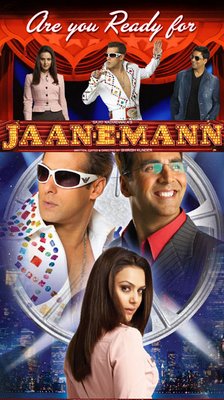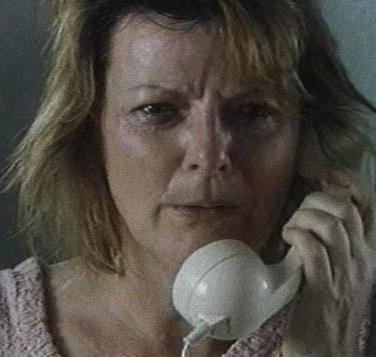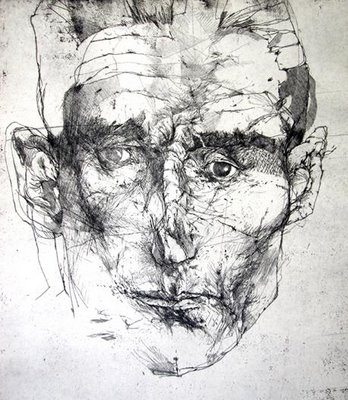Don
 Don
Don can be described as a roadside tea served in a high-end cool-interior coffee shop. The tea looses its open-air taste, and it costs more. Or it can be described as a tea-stall mass number remixed for Buddha Bar. Or see it as a thinking item girl, who can neither dance nor think well. There can be several such analogies but the point is this film has no charm of material it imitates or rediscover or re-interprets, and it is not saying that it does not have its own charm, which it has, although only at a few places. One more thing which came across my mind is lack of character artists in Hindi films today. We don't have anyone like
Mac Mohan (working) today, so that part of Mac goes to an unknown and becomes nothing. I seriously think that small parts should be given to known faces, audience have such a little time and volatile memory to accommodate a newcomer. They could have casted a newcomer in the place of
Boman Irani, who was really funny when he should be damn evil. Look at the
old Don and we have all the smaller parts to known faces. Also, one more thing which I might not be able to express clearly about the films of DON era. I saw them as a child and while seeing them I used to do little calculations about the good and the bad and try to pick up hints who is the real bad guy, the way camera zooms to some of the characters to give as hints and at times those hints are false (You get all the such tricks when you see bunch of them). So eventually you have the whole kit (at least you feel so), and try to make your own guesses, not only about the evil guy but about plot twists and turns, and when director (or screen writer) beats you in that kids play, you feel strangely satisfied, and add that extra twist in your rules book so that you can apply it for the next film. The new DON turns the old to be either too intelligent or too dumb and the fun of the game is lost. Also remakes of such types, broadly they can be done in two extreme ways. One way is like offering tribute to your favorite deity, write him/her love letters and take it all seriously. The second way is a meta-movie, which is a parody of the old film. I think neither of the two will work. The first one is too religious and the second one is too blasphemous, too intelligent.
Farhar Akhtar tried something in between (more towards the former approach), and now we know that too doesn't work.
Jaan-e-mann Jaan-e-mann
Jaan-e-mann is one of the few Hindi films that I saw this year and came out satisfied, and even hopeful. If we see the whole film, there are several moments where it falls in the trap of conventions and cliches (especially in second half with the kid), but this film works as the revival of Bollywood musical, how music and narrative can be mixed with colorful imagination. Overall the film is not path breaking and all, but its quite conceptual in its musically over-the-top grand style. Here also, things are painted and clothes are designer, but they have an intentionally made-up feel with no intend to be real, which has its charm. Also the plot is so thin that we don't care about it, everybody knows what will happen and who will get the girl in the love triangle and cliches are there in place, but here shallowness has self-awareness. This romance is a costume drama, visual gimmick, a Broadway musical and homage to Bollywood. Here is a film where we sit to see the next song, the film moves from song to song, sometimes filling up for dialogues, sometimes for whole situations. There is a song,
Kabool kar le, which is there to energize the routine situation, is filmed imaginatively and also works as the parody of all
shaadi movies.
Salman Khan is as self-aware and self-referential as the film, and he perfectly fits the bill, and so are
Akshay Kumar and
Priety Zinta. Even in this unreal and bizarre colored setting, somehow we feel the characters are not card board, this is I think, a big achievement. This film is interesting because it shows how cinematic medium can be used to elevate (if it sounds pompous read 'perk up' instead) the usual stuff without taking itself too seriously, most of the times. I sometime feel that life would have seen much more interesting if it had BGM, such movies strengthen that silly belief, as least for the time when you are in theatre.
Note:
1) Who-so-ever comments on this post, please write their favorite childhood movie. To start, mine is Mr. India. I have watched Mr. India more than 20 times and still have appetite for it.
2) Even if you feel its too difficult to answer the first question, feel free to comment. My blog can not afford to loose a comment ;)



